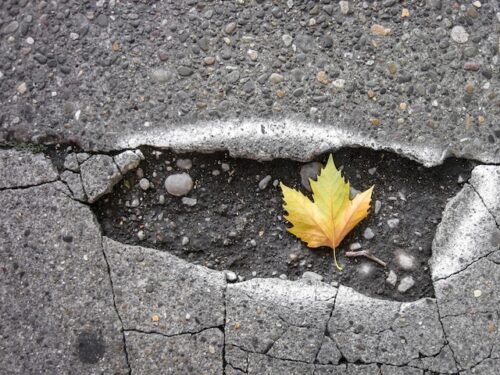
When driving, there are many things that must be taken into consideration, like other drivers, changing traffic patterns, and wild animals. However, many do not take the inconsistency of road surfaces into consideration! Unfortunately, this can lead to collisions. If you are involved in an accident caused by dangerous road conditions, understanding the steps you must take to hold someone liable with the help of a Prince George’s County auto accident lawyer starts with learning what entity is responsible for the collision. Keep reading to learn more about these unfortunate circumstances.
What Constitutes Dangerous Road Conditions?
There are generally two ways in which road conditions can be dangerous. The first occurs when a road is poorly maintained. This includes any of the following hazards:
- Uncleared snow, ice, or debris
- Potholes
- Cracks
- Erosion
- Fading traffic lines
- Broken or missing signs
- Uneven road surfaces
- Poor lighting
- Sinkholes
The other kind of accident can happen as a result of roads that were not properly designed or planned. For example, improperly graded roads, shoulder drop-offs, sharp turns, and blind curves are all roads with poor design features that can lead to a collision.
For example, if there is a blind curve and no warning, a driver may not know to slow down in anticipation of the curve. As such, they can lose control or crash into another vehicle or fixture.
What Injuries Can Occur?
Unfortunately, there are a number of injuries one may experience when involved in an accident caused by dangerous road conditions. These include broken bones, sprains, burns, traumatic brain injuries, spinal cord damage, back injuries, and lacerations.
Car accident injuries often require medical care, which can be extremely expensive. As such, it’s essential to understand what entity can be held label so you can recover the compensation you deserve.
Who Is Responsible for Resulting Injuries?
If injured because of a poorly designed or maintained road, the municipality responsible for it will be held liable. Though most people assume this is the town where the accident occurred, this is not true. Counties and the state can be responsible for injuries that occur because of their poor maintenance. It is important to note that a government agency must have time to be aware. For example, if a sinkhole appears and five minutes later a driver is hurt as a result, the town would not be held liable as five minutes is an unreasonable time to be aware of such an occurrence and respond to the issue.
However, if the accident occurred because of poor roadways and another driver’s negligence, you may be able to recover compensation from the driver. For example, if you were struck by a speeding driver who hit a pothole, the driver would likely be liable as they were breaking the law at the time. If they were traveling the speed limit, they may have been able to avoid the hazard.
If you need help holding a negligent party responsible for an injury you endured because of poor road conditions, understanding how to proceed is vital. It’s in your best interest to contact an attorney from McCarthy, Winkelman & Mester as soon as possible. Reach out today to learn how we can assist you during these challenging times.


